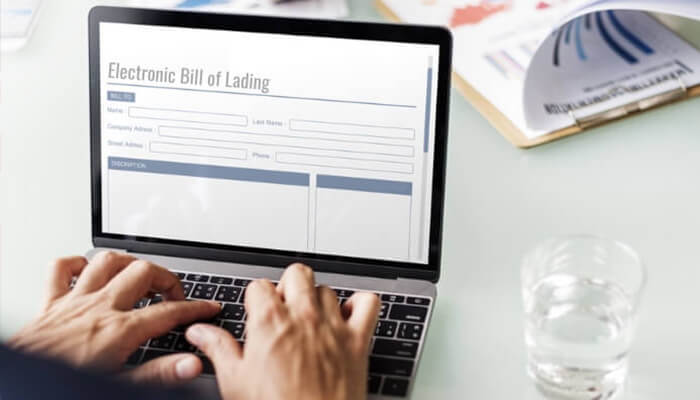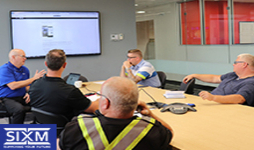
It is considered the most important shipping document concerned to the import and export process. Nevertheless, most shippers do not quite understand its meaning or the types of bill of lading that are issued along the supply chain.
What Is A Bill Of Lading
The bill of lading (B/L or BoL) is a highly important paper in the shipping and logistics
industry. It is a legal document issued by a carrier to a shipper that details the type,
quantity and destination of the goods being carried.
It provides evidence or proof of shipment, indicating the owner of the cargo. Also, the bill
of lading is evidence of the Contract of Carriage, receipt of goods and document of title to
the goods. Hence, the owner of the cargo (the holder of the B/L) has the legal rights to
claim the goods or arrange transfer ownership of it to another party in the supply chain.
You can now source directly from the most competitive factories in Mexico. Get sourcing services in Mexico from SIXM!
Authorized Signature In B/L
This document must be signed by an authorized representative from the carrier, shipper, and receiver and always be conducted with the shipped goods.
It Can Be Issued As Negotiable And Non-Negotiable
Negotiable: a straightforward instruction is provided to make the delivery of the goods to anyone having possession of the original copy of the BL, which indicates the title and control of the freight. As a negotiable bill, the consignee/notify or its agent has to present an original copy of the B/L at the discharge port for customs purposes, otherwise, it will not be released.
Non-negotiable bill: In this case, it indicates a specific consignee/notify to whom the cargo will be shipped and delivered. Nevertheless, it does not serve the owner of the goods. Here the assigned consignee/ notify can claim the cargo by confirming their identity.
Read More:Types Of Bill Of Lading
There are several subdivisions and formats of a bill of lading that carriers can issue along the supply chain. Some of the most used categories are:
- House Bill of Lading
- Surrender Bill of Lading
- Straight Bill of Lading
- Master Bill of Lading
- Blank Bill of Lading
What Is “Freight Collect” And “Freight Pre-Paid”?
The bill of lading will always be issued on “Freight Collect” or “Freight Pre-Paid” terms. These terms refer to which party will be paying for the International Freight costs.
- Freight Collect: the freight charges will be ‘collected' by the Consignee.
- Freight Pre-Paid: the rates will be ‘pre-paid', which means that the shipper will be billed for the freight charges.
Note that the carrier must receive the payment of the shipping charges (by either party) before they release the cargo to the Consignee/Notify.
To make it easier to understand, we have some common examples upon INCOTERMS for each type of term:
- Common INCOTERMS for Freight Collect: EXW, FCA, FAS, FOB;
- Common INCOTERMS for Freight Pre-Paid: CFR, CIF, CPT, CIP, DAT, DAP, DDP.
Bill Of Lading Information
Right below you can find an example format of a bill of lading:
- Shipper's details: company name, address and contact;
- Consignee: company name, address and contact;
- Notify Party: normally, the Notify party is the same as Consignee, hence it is marked as “same as consignee”. This field can be used to notify any third parties that need to be made aware of the shipment updates, progress and delivery;
- Carrier: company name, logo, address, contact details, Terms and Conditions of carriage;
- B/L Number - the unique B/L number issued by the Shipping Company or Freight Forwarder that is arranging the carriage of the cargo;
- Vessel Name and Voyage number;
- Place of Receipt, Port of Loading, Port of Discharge, Place of delivery, Final destination;
- Container Number, Seal Number, Shipping Marks & Numbers, Description of goods, Gross Weight, Cubic Measurement (m3), Special Instructions (such as cargo classification);
- Payment Terms: Freight Prepaid or Freight Collect;
- INCOTERM: FOB, EXW, FCA, etc.;
- Place and Date of Issue, Signature;

